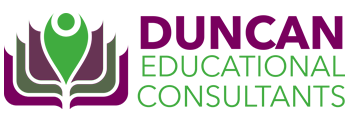Teaching in an establishment committed to tradition rather than truth, is a challenge. However, the absence of discomfort is the point at which people fail to actually learn. In fact, discomfort may actually be a prerequisite to transformative teaching and learning. When I begin a process of curricular revision, I do so with the lens of necessary discomfort. I do not believe updates to curriculum require a total abandonment of the foundation of the original curriculum, as teachers are professionals. I simply reveal areas where teachers may organically create spaces for debate, critical questioning & thinking, metacognitive activities aimed at re-evaluating not only what is taught, but what is not. Whom do we lionize? Whom do we demonize? At whose expense are certain topics taught, especially when done in an ahistorical or non-contextual way?
At this point, those who are resistant to the process and eventual product begin to discuss the need for free speech. Great! But let’s define free speech. Free speech should never mean we get to act like classism, racism, ableism, and heterosexism are a mass delusion in the lives of many students and teachers. Updating one’s curriculum to reflect the truth of history from multiple perspectives can never devolve into the debasing of people’s humanity simply for the sake of maintaining the integrity of a crooked canon. Beware any school that coddles the feelings of the privileged over the ethical obligation to inform students, in a holistic way, how our world came to be the way it is.
By now, resistant institutions bring up diversity. That’s when I know there’s a serious problem. You see, diversity is not inclusion. In fact, if diversity is the only aim in a school’s strategic plan, the institution is basically doubling-down on their commitment to maintaining the status quo. Having a rainbow of faces on a campus is not a marker of an inclusive institution- that’s just lazy marketing. Anyway, back to curricular revision. Recreating curriculum to be more comprehensive and inclusive is not an activist approach to teaching, or a promotion to revisionist history. I submit that a curriculum absent of voices of people of color, LGBTQIA+ communities, the poor, and the other-abled fails to provide students with a rigorous or adequate education. Schools are robbing families everyday by producing students who have not mastered the ability to view the world from various perspectives. No one should enter university, much less a business, without being required to contend with realities that bring their own experiences into question. The fact that there are students that need to be literate in several identities and realities, while others are lulled to sleep by a false sense of achievement because they can quote Homer is a shame. That is not education. That is not learning. The psychological tension some experience in learning something new is reflective of an intersection of differing narratives, and true educators are required to provide that to their students.
When I enter schools to help bulk up their curriculum, I never suggest schools throw away what they have. You use what you have to get what you want. My 4-year project of revising a Eurocentric United States History Curriculum did not require me to throw away all text books and never talk about major “beloved” figures. Instead, I would ask how we came to frame certain individuals the way we do. For example, why do we balk against the fact that one can be both racist and anti-slavery? Lincoln was both. It is vital that we center the narratives in a pedagogically complementary manner. This is how students recognize themes and gain connections. Revision is not the space where we ask the oppressed to become teachers in the classroom (unless of course the teacher is a member of a marginalized community). That is not the job of the student. This is the space where muted voices are finally amplified for the benefit of all. Naming, defining, and elevating the dynamics of the experiences within and without the room, fosters an environment of creative dynamism. Include movies. Include songs. Include what and whom you’ve ignored.
It takes preparation, collaboration, and a love of learning. Ego is not part of the equation, inasmuch as ego tends to turn away from conflict. Embracing the conflict can lead to positive change. When positive change is the end, the growing edge is the means.
